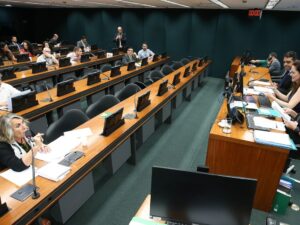Certainly! Here’s a professional journalistic summary and reflection based on the international stories you shared:
—
**Non-Americans Are Talking About These Major Current Events That Are Barely Making Headlines In the US — And It’s Eye-Opening To See What We’re Missing**
With campaign chaos, courtroom dramas, and climate crises dominating US headlines, the rest of the world is undergoing rapid and significant shifts that often fly under the radar. From diplomatic appointments and military aid negotiations to human rights concerns and political turbulence, these stories reveal a dynamic global landscape that could have profound implications for the US and beyond.
**Major Global Developments That Went Unnoticed**
One striking story involves the nomination of Nick Adams, an Australian conservative influencer, as the US ambassador to Malaysia. Adams’ provocative social media presence—marked by misogyny, Islamophobia, and staunch support for Israel—has sparked outrage in Malaysia, a Muslim-majority country wary of his extreme rhetoric. This appointment underscores a trend where political loyalty seems to outweigh diplomatic expertise, raising concerns about US engagement with Southeast Asia.
In a notable turnaround, President Trump announced plans to send billions of dollars in weapons, including Patriot missile systems, to Ukraine through NATO, while threatening secondary sanctions and tariffs on Russian oil. The move aims to accelerate peace negotiations with Moscow amid ongoing conflict but has elicited cautious responses from Ukrainian and European officials. Experts note that the delay could give Russia space to maneuver diplomatically and economically.
Meanwhile, China is solidifying its influence in Africa, Southeast Asia, and Latin America. A recent Senate report highlights how Beijing is filling the aid and diplomatic void left by US retrenchment under the Trump administration—delivering food, infrastructure investments, and health supplies that expand its global footprint.
In Europe, a rare coordinated call from 27 former EU ambassadors urges suspending trade with Israel due to alleged war crimes and settlement expansion in Gaza, signaling a significant diplomatic fracture within the bloc. This intervention comes amid mounting international scrutiny on Israel’s military operations and human rights record during the Gaza conflict.
**Tensions and Risks in Strategic Regions**
Malaysia’s new export controls on US AI chips and the recent US tariffs demonstrate ongoing economic conflicts tied to technology and security concerns. The Asian nation’s crackdown on chip exports—especially following allegations of circumvention—reflects the wider geopolitical tug-of-war over advanced technology.
Australia’s stance on Taiwan exemplifies strategic ambiguity. While staying non-committal about military backing in hypothetical conflict scenarios, officials emphasize sovereignty over automatic support—highlighting the complex balance of regional diplomacy amid rising Indo-Pacific tensions.
In Europe, Sweden’s disclosure that a young government minister’s son involved far-right groups starkly reveals youth radicalization issues that echo across many democracies grappling with extremism.
**Contested Borders, Human Rights, and Political Turmoil**
India’s efforts to improve relations with China—through talks on trade restrictions—are a sign of cautious diplomacy amidst a long-standing border clash. Concurrently, the anniversary of the Srebrenica genocide reminds the world of Europe’s recent history of ethnic violence, with ongoing trials and memorialization efforts.
Meanwhile, global health setbacks emerge as HIV rates increase due to criminalization and funding cuts, especially in Africa. Experts warn that these setbacks threaten to undo years of progress in combating the epidemic.
In South Asia, Pakistan’s recent creation of the Federal Constabulary signals heightened internal security measures ahead of potential protests by jailed former Prime Minister Imran Khan, highlighting ongoing political repression.
**Emerging Risks and Humanitarian Crises**
In Syria, sectarian clashes in Sweida highlight enduring instability and the fragile control of the new government, while Israel’s military actions and war crimes accusations from former Israeli leaders reflect internal conflicts and debates over the ongoing Gaza war.
Cuba’s recent sanctions on its president, citing human rights violations, mark a shift in US policy amid tense anniversary protests, illustrating ongoing US-Cuba tensions that persist since the 2021 protests.
**Key Takeaways**
These stories paint a complex picture of a world in flux, where alliances shift, conflicts endure, and new frontiers of influence emerge. The global power landscape is being redefined in real time—shifts that often escape mainstream US reporting but are crucial for understanding future international relations.
**What Surprised or Resonated With You?**
Looking at this round of stories, many reveal how interconnected and contentious today’s international issues are—yet they rarely find space in US media. Which story challenged your assumptions, or made you reconsider the global context? Share your thoughts below—I’m curious about what more people should be paying attention to.
—
Let me know if you’d like a shorter summary, specific focus, or to include particular insights!





